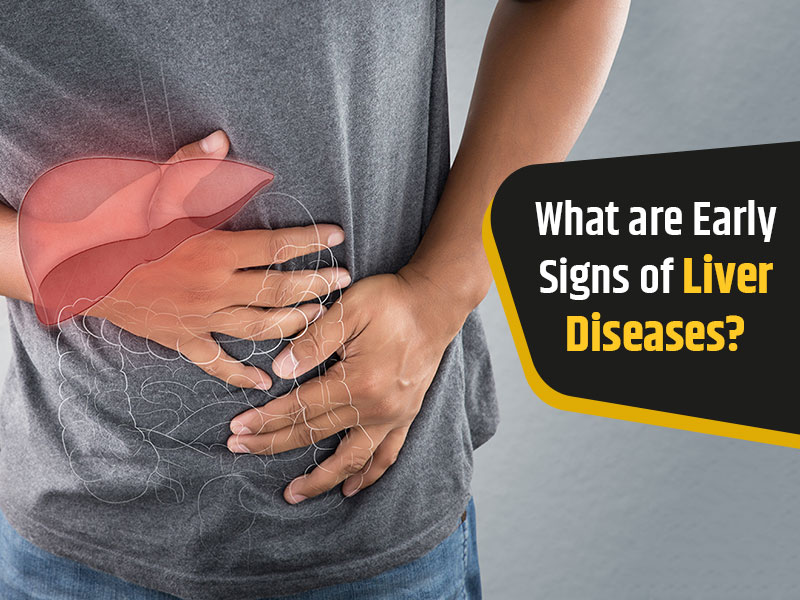Did you know that liver disease can develop silently, without obvious symptoms? The liver plays a crucial role in filtering toxins, aiding digestion, and storing energy, but when it starts to fail, the signs may not be noticeable at first. Spotting these early warning signs and consulting a specialist in time can help prevent serious complications
Common Early Signs of Liver Disease
- Fatigue and Weakness
Feeling constantly drained, even after a good night’s sleep? Persistent fatigue and weakness could be early indicators of liver disease, signalling that your liver isn’t functioning efficiently.
- Yellowing of the Skin and Eyes (Jaundice)
A yellowish tint in your skin or eyes could be a warning sign of liver trouble. This condition, known as jaundice, happens when the liver struggles to process bilirubin—a substance produced when red blood cells break down.
- Dark Urine and Pale Stools
Changes in urine and stool color may signal liver dysfunction. Dark urine and pale, clay-colored stools occur when bile flow is affected.
- Abdominal Pain and Swelling
If you’re experiencing discomfort or swelling in the upper right side of your abdomen, it might not just be indigestion. Liver inflammation or fluid build-up—often linked to conditions like hepatitis or cirrhosis—could be the cause.
- Loss of Appetite and Unexplained Weight Loss
Not feeling hungry lately? If you’ve been losing weight without trying, or have a reduced appetite, it could be more than just a temporary change—it might be a sign of liver disease affecting your metabolism.
- Nausea and Vomiting
Persistent nausea and vomiting may result from toxin build-up in the body due to liver impairment.
- Itchy Skin (Pruritus)
Liver disease can cause the accumulation of bile salts under the skin, leading to persistent itching.
- Easy Bruising and Bleeding
The liver helps produce clotting factors. If you notice frequent bruising or excessive bleeding from minor cuts, it could indicate liver dysfunction.
When to See a Specialist
Noticing these symptoms? Don’t ignore them. Consulting a liver specialist (hepatologist) as soon as possible can lead to an early diagnosis, which may prevent serious complications, including liver failure.
Risk Factors for Liver Disease
- Excessive alcohol consumption
- Obesity and fatty liver disease
- Hepatitis B or C infections
- Diabetes or metabolic disorders
- Long-term medication use
- Genetic liver conditions
How to Maintain Liver Health
- Eat a balanced diet rich in fruits, vegetables, and lean proteins
- Limit alcohol consumption
- Exercise regularly to prevent obesity
- Get vaccinated against hepatitis B
- Avoid unnecessary medications and toxins
- Schedule regular liver function tests if you are at risk
Conclusion
Liver disease often develops quietly, but early detection makes all the difference. If you’ve been experiencing persistent fatigue, jaundice, or digestive issues, don’t wait—schedule an appointment with a specialist. Proactive care can help safeguard your liver and overall well-being.


Recent Comments